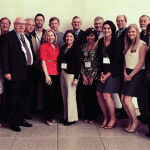Editor’s note: Welcome to the first installment of Experiences in Advocacy, a special series authored by ACR members detailing personal experiences in advocacy. We need rheumatologists to join the American Medical Association (AMA). Here’s why, and how to do it. Having participated in your delegation for over a decade, I have seen major improvements in…




